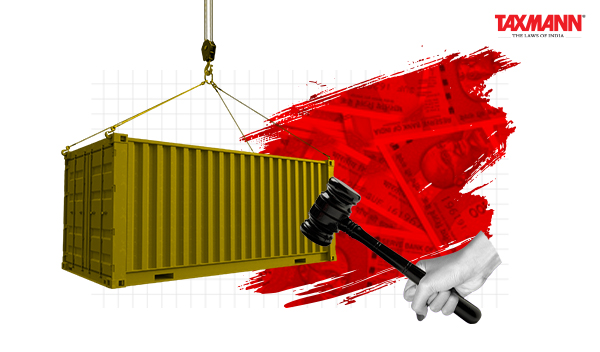AT-SAFEMA Upholds Penalty as Exporter Violated FERA by Failing to Prove Shipment of Goods Under State Credit Scheme
- Blog|News|FEMA & Banking|
- 2 Min Read
- By Taxmann
- |
- Last Updated on 28 March, 2025

Case Details: Vishal Exports Overseas Ltd. v. Deputy Director Directorate of Enforcement - [2025] 172 taxmann.com 602 (SAFEMA-New Delhi)
Judiciary and Counsel Details
- G.C. Mishra & Balesh Kumar, Members
-
Aditya Kumar, Adv. for the Petitioner.
-
A.R. Aditya & Ms Anwesha Mishra, Advs. for the Respondent.
Facts of the Case
In the instant case, the appellant company had availed of the benefits of the Scheme for Export of Goods and Services against Repayment of State Credits granted by the erstwhile Soviet Union. The said scheme was the result of a trade agreement between the Governments of India and Russia.
Under the said scheme, the foreign buyer was not required to remit any money directly to the Indian exporter, and the Indian exporter was to get his payment from the RBI through his (exporter’s) Bank. The relevant RBI circulars stipulated that funds from repayments of State Credits were to be utilised for the export of goods to the Russian Federation only, and no third-country exports were permitted to be financed out of funds from such repayments of State Credits.
The appellant company shipped 500 metric tons of wheat flour intended for Russia in compliance with directions issued by the RBI to exporters for the export of goods and services to consignees in Russia, against repayment of State Rupee credits. However, the appellant company failed to fulfil the specific requirement of the said scheme.
Further, the appellant company also failed to furnish any documentary evidence to show that goods reached Russia, which was required as per the ‘Scheme of Export of Goods and Services against Repayment of State Credits granted by the erstwhile Soviet Union.
Appellate Tribunal Held
The Appellate Tribunal held that, after having opted for the said Scheme, the appellants could not have agreed to adhere to only a few terms of the Scheme and not to other terms. Thus, the appellant company and its director were in contravention of section 48 of FERA, and a penalty was validly imposed on them.
List of Cases Reviewed
- Nestle India Ltd v. Commissioner of Central Excise, Chandigarh, 2009 (235) ELT 577 (SC)
- Commissioner of Central Excise, Mumbai v. Burroughs Wellcome (I) Ltd., 2006 (202) ELT 737 (SC) [Para 14]; distinguished.
List of Cases Referred to
- Contship Container Lines Ltd. v. D K Lall, 2013 (297) ELT 321 (SC) (para 3 and 14)
- Nestle India Ltd. v. CCE 2009 taxmann.com 355/235 ELT 577 (SC) (para 4).
Disclaimer: The content/information published on the website is only for general information of the user and shall not be construed as legal advice. While the Taxmann has exercised reasonable efforts to ensure the veracity of information/content published, Taxmann shall be under no liability in any manner whatsoever for incorrect information, if any.

Taxmann Publications has a dedicated in-house Research & Editorial Team. This team consists of a team of Chartered Accountants, Company Secretaries, and Lawyers. This team works under the guidance and supervision of editor-in-chief Mr Rakesh Bhargava.
The Research and Editorial Team is responsible for developing reliable and accurate content for the readers. The team follows the six-sigma approach to achieve the benchmark of zero error in its publications and research platforms. The team ensures that the following publication guidelines are thoroughly followed while developing the content:
- The statutory material is obtained only from the authorized and reliable sources
- All the latest developments in the judicial and legislative fields are covered
- Prepare the analytical write-ups on current, controversial, and important issues to help the readers to understand the concept and its implications
- Every content published by Taxmann is complete, accurate and lucid
- All evidence-based statements are supported with proper reference to Section, Circular No., Notification No. or citations
- The golden rules of grammar, style and consistency are thoroughly followed
- Font and size that’s easy to read and remain consistent across all imprint and digital publications are applied



 CA | CS | CMA
CA | CS | CMA
